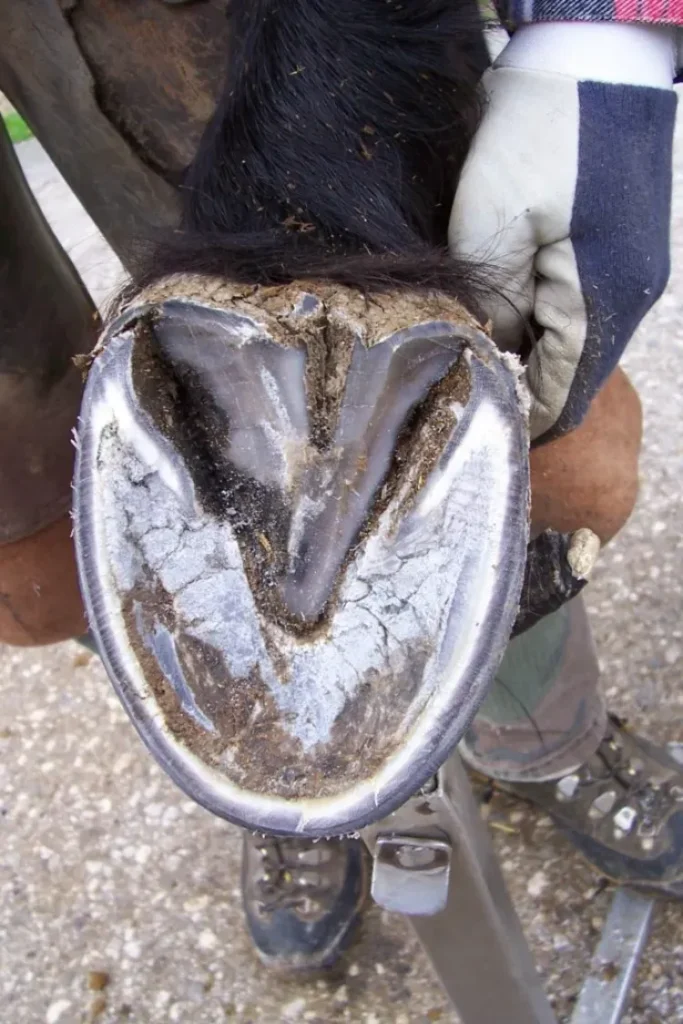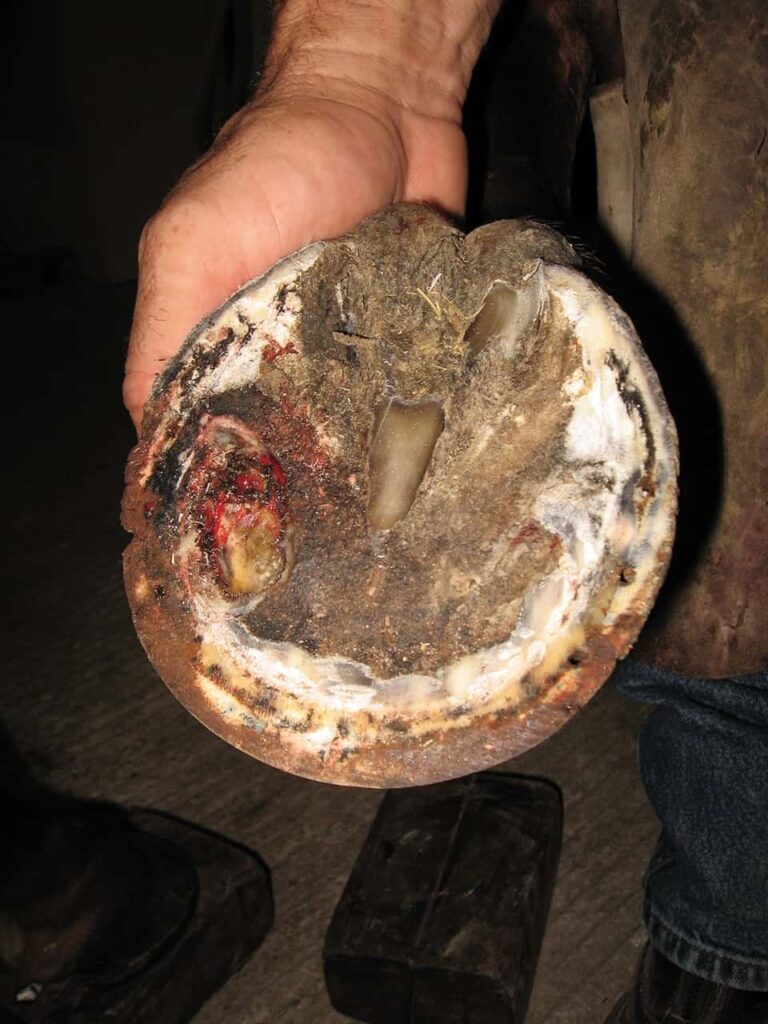
Why Cleaning Horse Hooves Is Important
- Removes rocks, mud, manure that can cause discomfort or infection.
- Helps prevent thrush and other bacterial/fungal infections.
- Allows you to check for cracks, punctures, abscesses early.
- Supports hoof health and your horse’s overall soundness.
What You Need
✅ Hoof pick (with or without brush)
✅ Sturdy gloves (optional)
✅ Hoof brush (for finer cleaning)
✅ Calm, safe environment
Step-by-Step Cleaning

1️⃣ Ensure Safety
- Stand beside your horse, facing its rear.
- Keep your body close to avoid injury if it moves.
- Run your hand down the horse’s leg to signal your intention.
2️⃣ Ask the Horse to Lift the Hoof
- Gently squeeze the fetlock or lean slightly to encourage the horse to lift.
- Support the hoof in your hand or rest it on your knee for stability.
3️⃣ Pick Out the Hoof
- Start at the heel, working toward the toe.
- Avoid digging into the frog (the V-shaped area in the middle); clean around it gently.
- Remove dirt, stones, and debris stuck in the grooves.
4️⃣ Brush and Inspect
- Use the hoof brush to remove fine dirt.
- Check for:
- Cracks
- Punctures
- Foul odor (possible thrush)
- Heat or swelling in the hoof or leg
5️⃣ Repeat for All Four Hooves
Daily cleaning or at least before and after riding is ideal.
Tips for Easier Hoof Cleaning

✅ Keep sessions short if your horse is young or fidgety.
✅ Reward your horse for standing quietly.
✅ Stay calm and patient to encourage cooperation.
✅ Work in a well-lit area so you can inspect clearly.
When to Call a Farrier or Vet
🚩 If you see a puncture wound
🚩 Persistent foul odor and black discharge (thrush)
🚩 Lameness or unwillingness to bear weight
🚩 Cracks or chips worsening
If you need a short caption for Facebook Reels or TikTok, or a visual diagram showing parts of the hoof for learning, let me know, and I will prepare them to support your content creation.